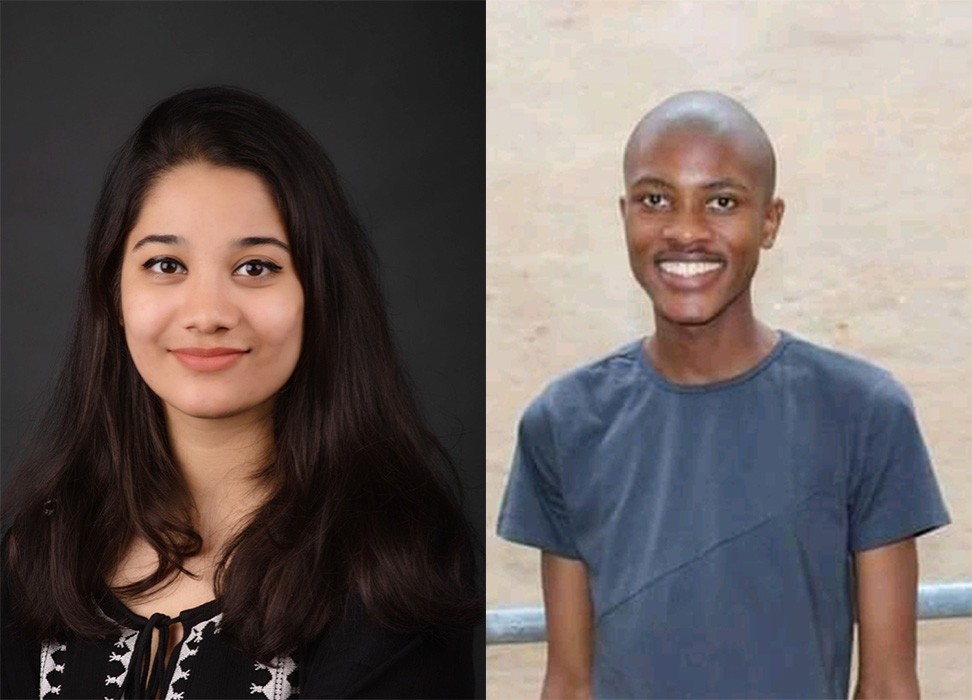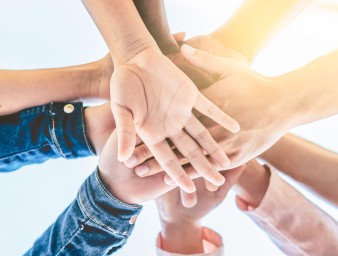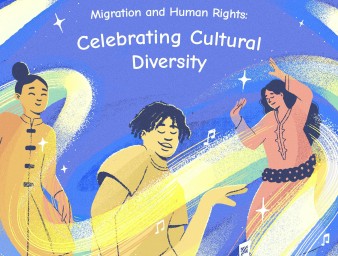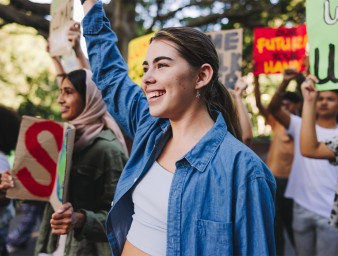A new Youth Advisory Board champions youth engagement
01 April 2022

A newly launched UN Human Rights Youth Advisory Board aims to empower and mobilize young people to stand up for their human rights.
“The establishment of the Youth Advisory Board marks the first such initiative by UN Human Rights at the global level,” said Imma Guerras-Delgado, Coordinator of the UN Human Rights Child and Youth Rights Unit. “We are committed to promoting young people’s right to participation, including in our own work.”
The Board was established as part of a recent partnership between UN Human Rights, Education Above All Foundation (EAA) and Silatech, who share a strong belief and vision for empowering youth to engage in human rights work. The Board members will meet virtually as a group to create quality learning resources on human rights advocacy for and by youth.
“The program centers around collaborating with and learning from the Youth Advisory Board members,” she said.
The Youth Advisory Board features 10 young people between the ages of 18-34 with a balanced gender and regional representation. They bring their collective experience in advocating for the human rights of youth covering a range of areas including education, employment, peacebuilding, sustainable development, climate justice, community development, migrant-led innovation, and youth policies.
"EAA is committed to young people as agents for change,” said Maleiha Malik, Executive Director, Protect Education in Insecurity and Conflict at EAA. “We are committed to this partnership with Silatech and UN Human Rights because it allows an inspiring and talented diverse group of young leaders to form an advisory board who will take a lead in designing and undertaking human rights advocacy.”
“We view this partnership with EAA and UN Human Rights as a bridge towards shaping and nourishing a culture of purpose, participation, and empowerment for young people,” said Ibrahim Al Malki, Senior Manager, Technology & Innovation at Silatech. “The Youth Advisory Board is pivotal as young men and women need to voice their own concerns and put forward unconventional tactics leading to the resolution of various issues including climate change, unemployment, poverty, gender inequality, and human rights.”
Standing up for and with youth in vulnerable situations
Youth Advisory Board member Sicelo Shange, 24, is currently an HIV Ambassador at the non-profit organization Youth Inter-Active in South Africa, where he advocates for Sexual and Reproductive Health and Rights (SRHR), bodily autonomy, and youth rights. The young activist works at a local HIV center, South African Voices, where he hosts young people for talks and capacity-building workshops.
As a child, Shange felt invisible. He was raised by his grandmother and father, but he felt unwanted by his cousins and aunts. Bullied at school by peers for not fitting in, Shange also kept a secret that he was sexually assaulted when he was six years old.
He felt alone and unable to confide in anyone, so he read books and quickly excelled in school. As he got older, he was able to find proper counseling, enabling him to speak about his experience with strength and conviction. This is also the reason why he became an activist.
“I never had someone who was actually a friend who would stand up for me, but now I can actually stand up for the kids,” he said. “I've always been moved by compassion. Every child, irrespective of where they are located, and every young person, should be secure one way or the other,” he said.
Youth Advisory Board member Huma Nasir, 26, is a lawyer based in Indian-administered Kashmir specializing in gender justice, human rights, peacebuilding, conflict resolution, reconciliation, and transitional justice. She is also working as a fellow on a European Union-funded peacebuilding project addressing diverse factors of violence and preventing violent extremism in South Asia.
As a young girl, Nasir always wanted to be a lawyer because she could represent people who didn’t have the tools to advocate for themselves. She feels the Youth Advisory Board will help her current work as a lawyer by learning from and exchanging ideas with the other members
“We all have on the ground insights because we are living in those spaces,” she said. “We are like-minded people and together we can create learning resources for other youth advocates and human rights defenders that are relevant and useful. The resources will also be quite instrumental and significant for the people who hope to change their human rights situation.”
Guerras-Delgado is looking forward to this type of youth-led human rights work evolving and expanding within the organization.
“We hope to see how we can scale up such initiatives further in the future, to champion youth leadership and meaningful youth engagement, as mandated by the UN Youth Strategy,” she said.



